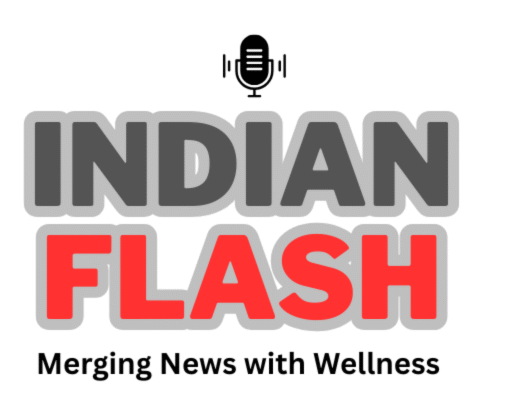What is Erectile Dysfunction (ED)?
Erectile Dysfunction (ED), also known as impotence, is the inability to achieve or maintain an erection firm enough for satisfactory sexual performance. While occasional difficulties are normal, frequent or persistent problems may indicate ED, which can affect self-esteem, relationships, and overall quality of life.
1. Causes of Erectile Dysfunction
ED can result from a wide range of physical, psychological, or lifestyle-related factors:
Physical Causes:
- Cardiovascular diseases: Reduced blood flow due to clogged arteries.
- Diabetes: Damages blood vessels and nerves controlling erection.
- High blood pressure: Impairs blood flow to the penis.
- Obesity: Leads to hormonal imbalances and vascular problems.
- Hormonal disorders: Low testosterone levels or thyroid imbalances.
- Neurological conditions: Parkinson’s disease, multiple sclerosis.
- Certain medications: Antidepressants, antihypertensives, and others.
- Alcohol and drug use: Affects the nervous system and libido.
Psychological Causes:
- Stress and anxiety: Particularly performance anxiety.
- Depression: Decreases libido and affects nerve signals.
- Relationship issues: Emotional disconnect with the partner.
2. Symptoms of Erectile Dysfunction
- Trouble getting an erection.
- Difficulty maintaining an erection during sexual activity.
- Reduced sexual desire.
If these symptoms persist for more than a few weeks or months, it’s advisable to consult a healthcare provider.
3. Early Warning Signs: Could You Be At Risk?
- Frequent fatigue and low energy levels.
- Reduced sexual desire.
- Difficulty maintaining erection during morning arousal.
- Changes in ejaculation or orgasm.
- Increased stress or mood changes.
- Uncontrolled diabetes or hypertension.
- Excessive alcohol or tobacco use.
These may not directly mean ED is developing, but they are risk indicators.
4. Medical Treatments for Erectile Dysfunction
A. Oral Medications:
- Sildenafil (Viagra)
- Tadalafil (Cialis)
- Vardenafil (Levitra)
- Avanafil (Stendra)
These medications enhance the effects of nitric oxide, a natural chemical that relaxes penis muscles.
B. Hormone Therapy:
- Testosterone replacement in cases of low testosterone.
C. Psychological Counseling:
- Especially effective when stress, anxiety, or depression is a factor.
D. Devices and Surgery:
- Vacuum erection devices (VED)
- Penile implants or vascular surgery (in severe cases)
5. Natural Remedies and Lifestyle Changes
A. Diet: Foods That Help Combat ED
- Leafy Greens (spinach, kale): Improve circulation.
- Beets: Rich in nitrates that boost blood flow.
- Watermelon: Contains citrulline which may increase blood flow.
- Pistachios and walnuts: Improve cholesterol and blood vessel health.
- Oats: Enhances testosterone levels.
- Dark chocolate: Contains flavonoids that improve blood flow.
- Pomegranate juice: Antioxidant-rich and heart-friendly.
- Garlic: Promotes nitric oxide production.
B. Exercises to Improve Erectile Function
- Kegel exercises: Strengthen pelvic floor muscles.
- Aerobic exercises: Improve heart health and blood flow.
- Yoga: Reduces stress and boosts flexibility.
- Weight training: Helps raise testosterone levels.
6. Herbal and Ayurvedic Remedies
A. Popular Herbs:
- Ashwagandha: Reduces stress and boosts testosterone.
- Ginseng (especially Panax Ginseng): Improves libido and performance.
- Horny Goat Weed (Epimedium): Increases nitric oxide levels.
- Shilajit: Used in Ayurveda to improve stamina and vitality.
- Maca Root: Enhances energy and sexual function.
Note: Always consult a healthcare provider before starting herbal remedies, especially if on medication.
7. Lifestyle Tips to Prevent or Reverse ED
- Quit smoking: Tobacco restricts blood flow to veins and arteries.
- Limit alcohol: Excess can depress the central nervous system.
- Manage stress: Through meditation, hobbies, or therapy.
- Get quality sleep: Lack of sleep lowers testosterone levels.
- Maintain a healthy weight: Obesity is a major risk factor.
- Regular health checkups: For blood pressure, cholesterol, and glucose.
8. When to See a Doctor
- If ED is frequent or persistent.
- If you suspect it may be linked to an underlying health condition like diabetes, heart disease, or low testosterone.
- If you experience other symptoms like chest pain, fatigue, or hormonal imbalances.
Conclusion
Erectile dysfunction is not just a sexual issue—it can be an indicator of broader health problems. Fortunately, it’s treatable through a combination of medical, psychological, and lifestyle approaches. Early detection and healthy living can make a significant difference. Don’t ignore the signs—seek help, and take steps toward a healthier and more satisfying life.




